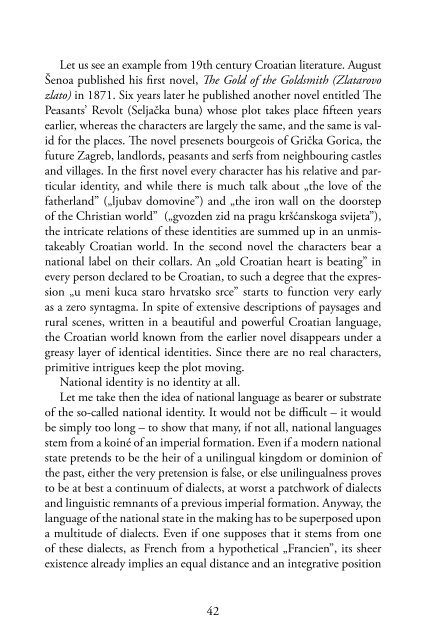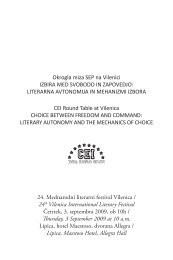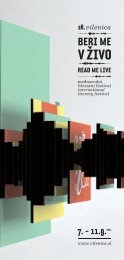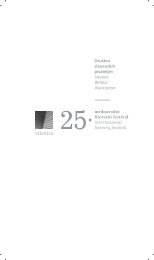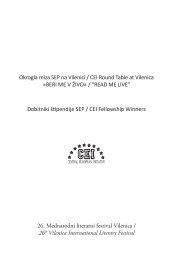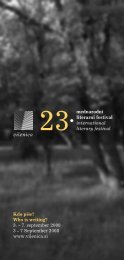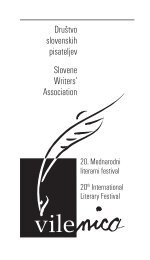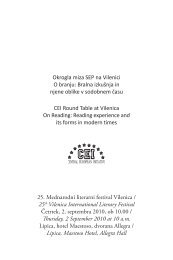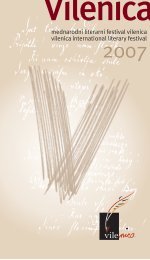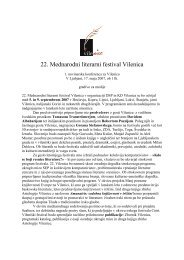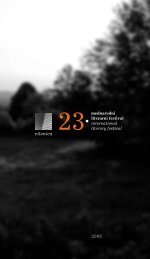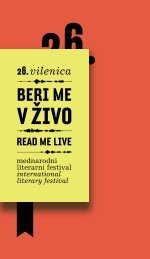PDF 3,15Mb
PDF 3,15Mb
PDF 3,15Mb
You also want an ePaper? Increase the reach of your titles
YUMPU automatically turns print PDFs into web optimized ePapers that Google loves.
Let us see an example from 19th century Croatian literature. August<br />
Šenoa published his first novel, The Gold of the Goldsmith (Zlatarovo<br />
zlato) in 1871. Six years later he published another novel entitled The<br />
Peasants’ Revolt (Seljačka buna) whose plot takes place fifteen years<br />
earlier, whereas the characters are largely the same, and the same is valid<br />
for the places. The novel presenets bourgeois of Grička Gorica, the<br />
future Zagreb, landlords, peasants and serfs from neighbouring castles<br />
and villages. In the first novel every character has his relative and particular<br />
identity, and while there is much talk about „the love of the<br />
fatherland” („ljubav domovine”) and „the iron wall on the doorstep<br />
of the Christian world” („gvozden zid na pragu kršćanskoga svijeta”),<br />
the intricate relations of these identities are summed up in an unmistakeably<br />
Croatian world. In the second novel the characters bear a<br />
national label on their collars. An „old Croatian heart is beating” in<br />
every person declared to be Croatian, to such a degree that the expression<br />
„u meni kuca staro hrvatsko srce” starts to function very early<br />
as a zero syntagma. In spite of extensive descriptions of paysages and<br />
rural scenes, written in a beautiful and powerful Croatian language,<br />
the Croatian world known from the earlier novel disappears under a<br />
greasy layer of identical identities. Since there are no real characters,<br />
primitive intrigues keep the plot moving.<br />
National identity is no identity at all.<br />
Let me take then the idea of national language as bearer or substrate<br />
of the so-called national identity. It would not be difficult – it would<br />
be simply too long – to show that many, if not all, national languages<br />
stem from a koiné of an imperial formation. Even if a modern national<br />
state pretends to be the heir of a unilingual kingdom or dominion of<br />
the past, either the very pretension is false, or else unilingualness proves<br />
to be at best a continuum of dialects, at worst a patchwork of dialects<br />
and linguistic remnants of a previous imperial formation. Anyway, the<br />
language of the national state in the making has to be superposed upon<br />
a multitude of dialects. Even if one supposes that it stems from one<br />
of these dialects, as French from a hypothetical „Francien”, its sheer<br />
existence already implies an equal distance and an integrative position<br />
42


